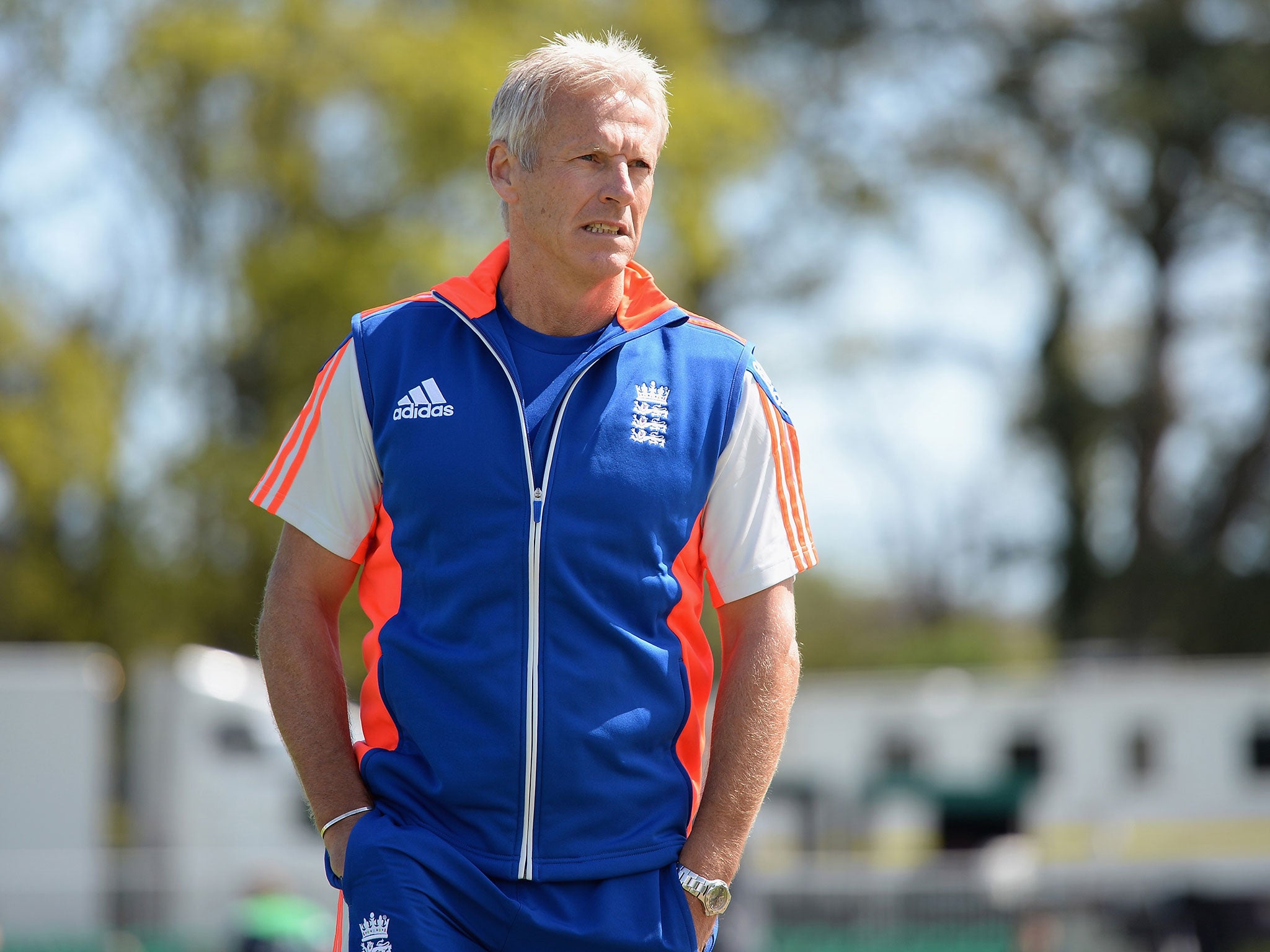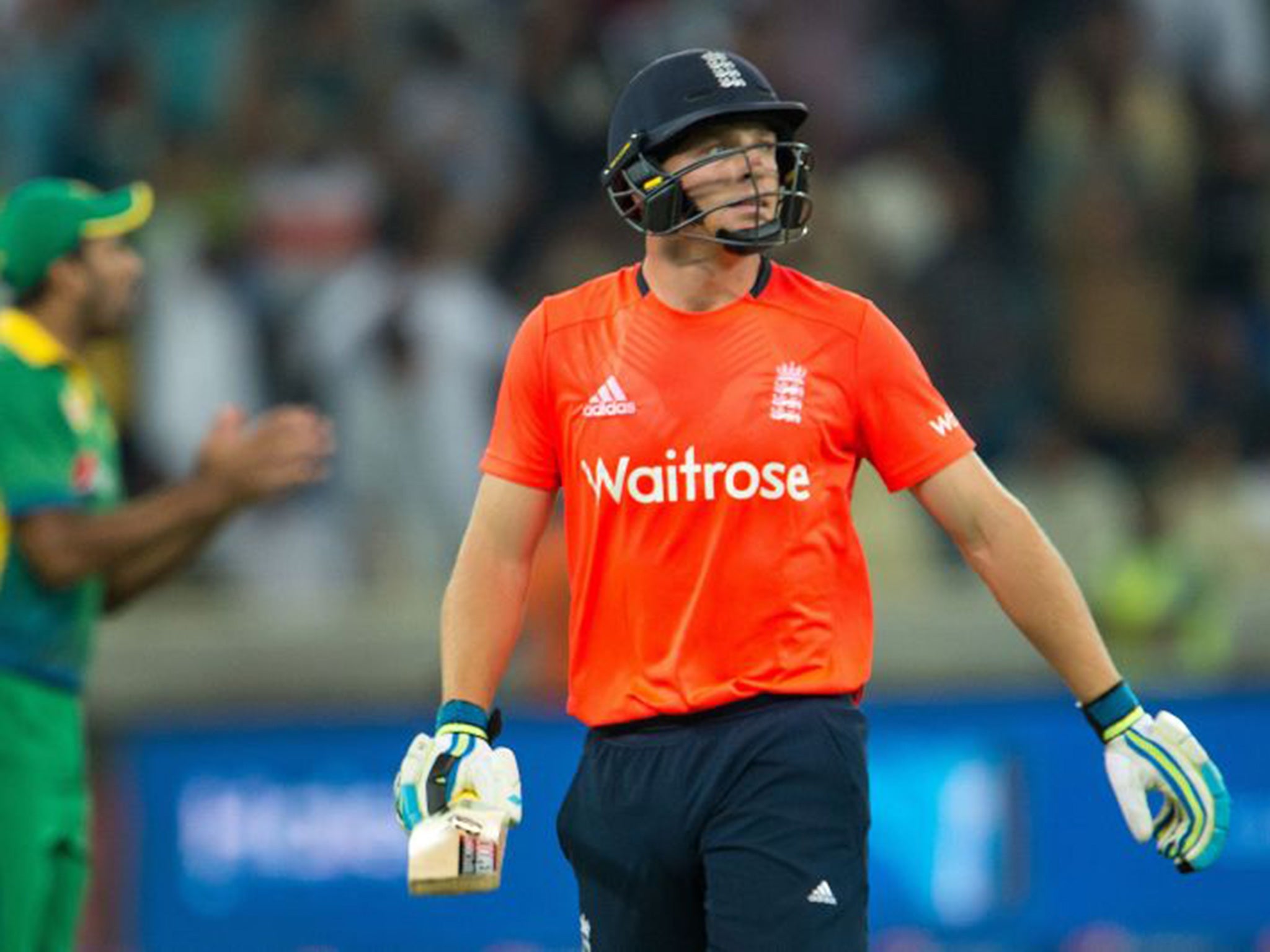England: Zeroes to heroes in five easy stages
After humiliation at the World Cup England’s one-day side are utterly transformed

Perhaps the biggest indictment of England’s miserable World Cup campaign at the start of this year was that their exit wasn’t greeted with anger but more a weary sigh of resignation.
That was entirely understandable. England have not been in a World Cup final since 1992 and for the last six editions of the tournament they have looked, and played, like also-rans. Little wonder that enthusiasm for the nation’s one-day side was at an all-time low.
Forward wind to this month, however, and spirits have not just risen but soared like a towering hit from the bat of Jos Buttler. Or Alex Hales. Or Sam Billings.
Since the nadir of defeat to Bangladesh at the Adelaide Oval, England have dragged themselves off the canvas and are now, finally, punching their weight in one-day cricket. So how have they done it?
1. Sack the coach
Peter Moores was a dead man walking as soon as Jimmy Anderson was castled by Rubel Hossain in the group match against Bangladesh that sealed England’s World Cup fate. One more loss and England would have finished below Afghanistan in a group of death that had sucked the life out of a one-day side racked by self-doubt and negativity.
Moores is clearly one of the best coaches of his generation – his achievements in county cricket have proved that – but when it came to getting the best out of a side packed with raw talent he failed dismally.

Hales, potentially one of the most destructive opening batsmen in world cricket, spent his World Cup mainly sat on the sidelines as England went into the tournament with a top three of Moeen Ali, Ian Bell and Gary Ballance. In their opening match at the MCG, Australia’s opening salvo featured David Warner, Aaron Finch and Shane Watson.
It was like going into battle against machine guns armed with water pistols. The play-it-safe default position preferred by Moores was thrown out of the window never to return.
2. Back the captain
Calls for Eoin Morgan to follow Moores out of the door after the World Cup were understandable given the Irishman’s chronic lack of form. He scored just 90 runs at an average of 18 in the tournament and had made just two runs in four innings going into the World Cup.
While Bell, Anderson and Stuart Broad were not so lucky, Morgan was given a stay of execution. In the 14 matches that followed, England won eight and Morgan was a cricketer reborn, scoring 754 runs at an average of 58. Perhaps his most telling contribution came in the first match of this new era: he smashed 50 off 46 balls against New Zealand at Edgbaston in an innings that not only restored his confidence but helped England on their way to a record score of 408. Neither he nor his side have looked back since.

It is a measure of England’s new focus on the one-day game, a stance driven by the new director of cricket, Andrew Strauss, that Middlesex and the England and Wales Cricket Board decided to grant Morgan a month off during August as the demands of a gruelling 10 months began to show.
He came back refreshed and led from the front in a narrow defeat against the Aussies. This England side will now follow him anywhere.
3. Give the players freedom
The coaching combination of Trevor Bayliss and Paul Farbrace, whose contribution throughout 2015 cannot be overstated, put the onus on individual responsibility – and, crucially, enjoyment. “We got the summer off to such a great start against New Zealand, which not only got the public behind us but also got the belief in the England dressing room that we can take anyone on,” says Billings, who made his debut in the first ODI of the summer. “It was all about having fun and scoring some runs.
“The atmosphere that has been created has been incredible, you’re just encouraged to go out there and play freely and enjoy it rather than feeling under pressure.”

Billings is just one of those to thrive, with the likes of Buttler – who hit a hundred off just 46 balls against Pakistan in the UAE – Hales, Joe Root and Jason Roy all attacking from the off with broad smiles of their faces.
The bowlers too have been encouraged to attack. “The best one-day teams have wicket-takers and we’ve got them throughout this side,” says Liam Plunkett, who, like Billings, played in that first match of the summer. “We’ve also got a leg-spinner to add that variety too.” He is referring to Adil Rashid, who has taken 19 wickets for the team this year and added a much-needed air of mystery to the attack.
4. Catch the ball
One of Bayliss’s first missions as England coach was to improve the catching of a side who were letting too many chances slip through their fingers. It has worked. England’s snaffling has been exemplary in one-day cricket in the past nine months, with two stunning catches, from Steve Finn and Roy against Australia at Old Trafford in September, really sticking in the mind.
The youthful zest of this side has also taken England’s ground fielding to a new level, especially with James Taylor and Ben Stokes.
Pakistan’s running between the wickets may have been lampooned in the recent one-day series but some credit should also go to England’s fielders, because when these players get a run-out opportunity they have begun to take it with both hands.
5. Smile and the world smiles with you
Previous England teams could justifiably have been accused of taking themselves too seriously, but that certainly could not be levelled at the current side.
After all, how many teams in a world cricket can boast a bowler who owns an imaginary horse? Mark Wood may have missed out on England’s recent one-day series in Pakistan but England galloped on merrily without him.

“Everyone is just happy for everyone when they do well,” says Billings. “There’s a real sense that you’re playing with your mates. It’s the best environment I’ve ever played in.”
After the most extraordinary reversal of fortune, the hope is that this is just the start
Join our commenting forum
Join thought-provoking conversations, follow other Independent readers and see their replies
Comments
Bookmark popover
Removed from bookmarks